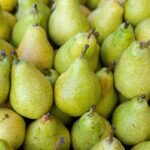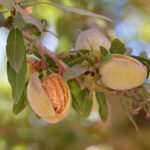Pakistan gains broader U.S. access for mangoes
Leading Pakistani mango exporter Harvest Tradings has welcomed the decision by the US Department of Agriculture (USDA) to allow airlines other than Pakistan’s national carrier Pakistan International Airlines (PIA) to transport mangoes to North America.
Harvest Tradings chief executive Ahmad Jawad said the development, which will enable more companies to ship Pakistani mangoes to Chicago, would ultimately help increase export volumes from Pakistan.
During recent correspondence between Pakistan's Department of Plant Protection (DPP) and the USDA, the two sides agreed that Pakistani exporters would be able to export mangoes through other airlines bound for Chicago’s O'Hare International Airport, removing the restriction that had allowed only PIA to make such shipments in the past.
However, in a statement Jawad urged the USDA's Animal and Plant Inspection Service (APHIS) to go one step further and put in place the same import regime for Pakistani mangoes as Indian products.
"Our Indian counterparts have permission to irradiate mangoes in their homeland which helps to curtail the cost factor," he said.
"Currently, expensive irradiation procedures are seriously hampering the export process."
Jawad argued that the only irradiation unit open to companies importing mangoes from Pakistan in Iowa City was not cost effective.
"We have made it clear that we want level playing field in every market," he said.
"In 2011, Pakistani growers exported only five tons (MT) of our country’s signature fruit to the United States and had hoped for a higher volume this year, as US is one of the largest importers of mangoes and we must take advantage of this opportunity."
The Pakistani mango sector’s moves to broaden access to the US market come in the wake of some negative publicity for the industry after UK environmental agency Fera revealed that 269 lots of Pakistani mangoes – 6% of total imports – were rejected in 2012 due to the presence of fruit fly.
According to the U.K.'s Food and Environment Research Agency (Fera), British customs also refused to allow more than 60 lots of Pakistani mangoes to enter the country in the year to 23 July, again due to the presence of fruit flies.
Speaking to www.freshfruitportal.com, Jawad said it was a matter of "great concern" that Fera was rejecting Pakistani mangoes as a result of fruit fly, adding that exporters had a responsibility to check or test products thoroughly before shipments are made.
However, vowing to raise the subject with Pakistan’s Ministry of National Food & Security, Jawad argued that much more needed to be done by the Pakistani government to improve standards.
"The Pakistani National Plant Animal Health & Inspection Service (NAPHIS) and Department of Plant Protection (DPP) must lay down some policy to control fruit flies in mango products, so that the fruit can be easily exported and that in future this embarrassment can be overcome," he added.









































